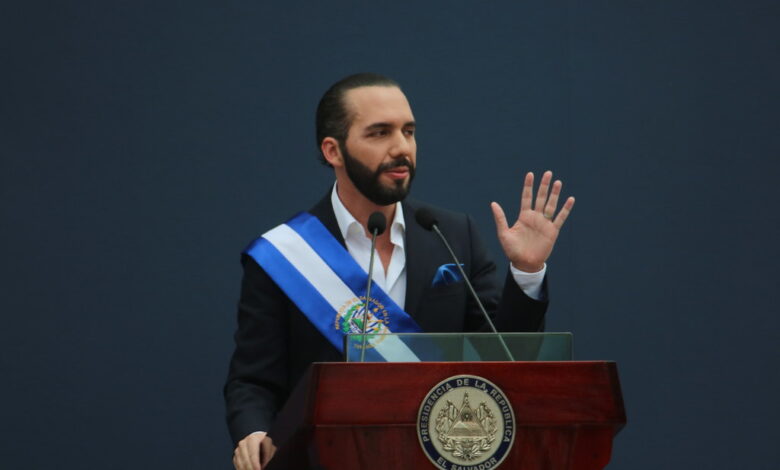Bukele’s Bold Bet: Cash-Strapped El Salvador Doubles Down on Bitcoin Dream

In 2021, James and Nicki Malcolm relocated from New Zealand to El Salvador, drawn by the enticing vision of a bitcoin utopia championed by President Nayib Bukele. The Central American nation, under Bukele’s leadership, became the first globally to embrace cryptocurrency as legal tender. Despite unrealized plans for Bitcoin City, a tax-free crypto haven powered by geothermal energy, the Malcolms and 15 other expatriates, along with a Salvadoran couple, have convinced over 100 businesses in the coffee-producing town of Berlin to accept bitcoin, as per a Reuters report.
Nicki, a former mortgage advisor involved in transforming Berlin into a crypto hub, emphasized the significance of adoption in their vision, crediting Bukele for initiating this transformative journey. While Bukele aims to secure a second term in the upcoming election, the groundbreaking for Bitcoin City is yet to commence. Despite this, the Malcolms remain undeterred and committed to their inspired mission.
Meanwhile, Bukele is steadfast in his pursuit of making El Salvador a cryptocurrency haven, a move that complicates the country’s prospects for a quick financial boost from the International Monetary Fund (IMF). Despite warnings from credit agencies about dangerously low state coffers, Bukele showcases spikes in Bitcoin’s value and infrastructure plans in upbeat social media posts accompanied by club music.
The rosy picture painted by Bukele contrasts sharply with the grim economic reality in El Salvador. The country faces stagnation, exhibiting the slowest economic growth in Central America. Extreme poverty has doubled since 2019, with nearly half the population grappling with food insecurity. Kevin Valle, a 24-year-old Salvadoran produce vendor, highlighted concerns about rising costs and the challenges of low employment and salaries in the community.
As of 2022, El Salvador’s public debt reached a 30-year high at $25 billion. After initial talks for a billion-dollar deal with the IMF collapsed during Bukele’s first term, negotiations resumed, with the government even hiring the IMF’s former Western Hemisphere director in April. The IMF’s recommendation to remove bitcoin’s legal tender status during financial support discussions has yet to receive an official response.
Despite the economic challenges, Bukele remains resolute, buoyed by Bitcoin’s recent rally. The alleged returns on El Salvador’s bitcoin portfolio, estimated at $121.6 million on an initial investment of $119.8 million, indicate a 1.5% gain. In response to the U.S. Securities and Exchange Commission‘s decision to permit U.S.-listed exchange-traded funds (ETFs) tracking bitcoin, Bukele’s vice president expressed the government’s commitment to reinforcing crypto legislation in a second term.
While some economists attribute El Salvador’s economic struggles to factors such as low foreign direct investment and government overspending, others question the wisdom of Bukele’s gamble with taxpayer dollars on a risky investment. Critics argue that, despite Bukele’s carefully curated public image of a modern and economically savvy leader, the tangible benefits of bitcoin adoption are yet to materialize.
The ongoing crackdown on violent criminal gangs, prioritized over civil liberties, has contributed to Bukele’s soaring popularity, with the president even playfully adopting the moniker “World’s Coolest Dictator” in response to concerns about democracy.





